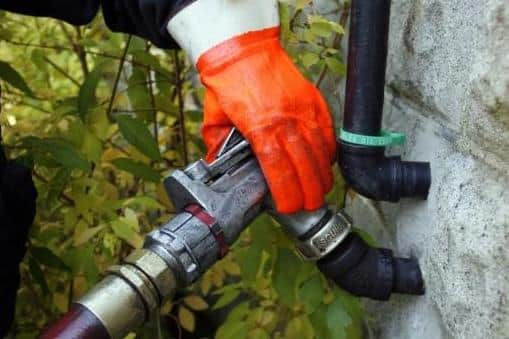Cost of living crisis: Rising energy costs to have severe impact on NI services and Stormont‘s frozen cash won’t cover it, economist says
and live on Freeview channel 276
Ulster University Economist Esmond Birnie was giving his assessment of the situation after crushing reports about the impact of energy costs on schools, hospitals and prisons in NI.
Yesterday the Department of Education reported that NI schools are facing an estimated 60% rise in energy costs, with an overall bill of £75m for oil, electric and gas in 2022-23, compared to only £47m last year.
Advertisement
Hide AdAdvertisement
Hide AdAlso yesterday NI Prison Service director general, Ronnie Armour, told the Nolan Show that he must recruit more than 100 staff to keep NI jails running, despite running an £8m deficit, mainly due to increased utility costs.


Last month NHS leaders from England, Wales and NI made the “unprecedented move” of urging the government to act on rising energy costs or risk a public health emergency due to surges in winter illnesses.
Ulster University Economist Esmond Birnie said the impact of rising energy costs on public services in NI could be summed up as “negative and severe”. He said inflation is impacting on the soundness of NI public finances in at least two major ways. Firstly, the need to pay more to heat schools and hospitals. Secondly, close to half of day to day spending by NI departments goes on pay. “So there will be big challenges if, as is likely, the going rate in public sector pay settlements rises.
“Regarding Stormont’s ‘extra money’ which remains relatively inaccessible if there is no Executive, the challenge is the amount in that pot is not enough to meet all the various demands for extra funding which already existed across the Departments even before the current cost of living and energy crises really took off.
Advertisement
Hide AdAdvertisement
Hide Ad“The likelihood is that NI somehow or other will replicate the [GB] reductions scheme on consumers’ energy bills - the £400 - that will use up most of the so-called extra money.”
However DUP MLA Phillip Brett disagreed with Mr Birnie, and said the ‘extra money’ at Stormont was “a myth”. The MLA said the Finance Minister confirmed to him that nearly £200m of pressures had been identified by government departments in relation to energy costs.
“The supposed pot of £400m ‘sitting in a Stormont bank account’ is a myth,” he said. “It is a political fiction created by a number of parties to prey on people’s fears and create a false impression. The truth is that we already know the Department of Health alone is facing an overspend greater than this figure. The Finance Minister knows this and that is why his Permanent Secretary said today [Thursday] that there are ‘unavoidable pressures’ of £1.5bn facing his department.”
A Department of Finance spokesperson said: “Over £400 million of additional funding has been provided from Treasury since the Draft Budget was published for consultation, however the Energy Bills Support Scheme payment being made directly by the British Government reduces this amount to £272 million.
Advertisement
Hide AdAdvertisement
Hide Ad“There will always be many competing demands on the funding available. Difficult decisions will have to be made, including how the available funding is to be allocated and that requires an Executive.
“The Finance Minister has repeatedly pressed the British Government for additional funding and continues to do so, including as recently as this week when he wrote to the Chief Secretary to the Treasury urging again for a reduction in VAT to help small businesses at this time of crisis, an uplift in welfare benefits to help vulnerable families and additional funding to enable continued delivery of public services.”
Sinn Féin MLA Caoimhe Archibald said: “Philip Brett should be urging his party colleagues to get back to work in the Executive with the rest of the parties on behalf of people and businesses who are struggling with the cost-of-living emergency and patients stuck on waiting lists for cancer treatment. It’s shameful that the DUP is sitting shouting from the sidelines while the people they were elected to represent are suffering.”